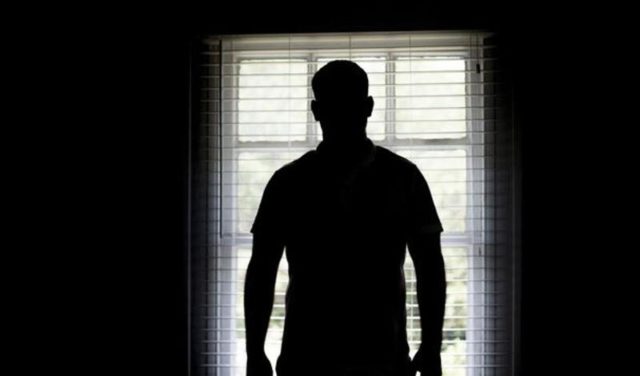Many could be roaming the country as the Forensic Services Laboratories has ground to a near-halt, with more than 100 000 case exhibits stuck in the process. And 92% of these cases are associated with rape and sexual assaults.
Durban – Sikhangele Mki was given a five-year suspended sentence for grievous bodily harm. But then his DNA linked him to 30 rapes, many of them young girls.
He was convicted on 30 counts of rape, 20 counts of kidnapping, four counts of assault with intent to do grievous bodily harm, 12 counts of robbery with aggravating circumstances, six counts of attempted robbery with aggravating circumstances, two counts of robbery and three counts of attempted robbery.
His youngest victim was 11 years old, nine victims were younger than 16. Mki admitted to raping some of his victims more than once, often providing gruesome details.
He was convicted in the Western Cape High Court in 2017 and is now serving 15 life terms and 120 years imprisonment.
He was only caught and convicted after his DNA sample was run through South Africa’s DNA system.
Now, many more like him could be roaming the country as the Forensic Services Laboratories (FSL) has ground to a near-halt, with more than 100 000 case exhibits stuck in the process. And 92% of these cases are associated with rape and sexual assaults.
On Thursday, the DA’s Andrew Whitfield raised the alarm, saying the huge backlog at the FSL was because of “maintenance contracts for the highly sensitive machinery and consumables not being renewed. Procurement of consumables also ground to a halt” during the second and third quarter.
“We believe the accumulated total backlog of DNA case exhibits is now well over 100 000, leaving thousands of victims and their families out in the cold,” said Whitfield, adding this had led to major blockages in the criminal justice system.
Former deputy chair of the National Forensic Oversight and Ethics Board, Vanessa Lynch, whose five-year tenure ended in April, said yesterday: “Since the finalisation of the handover report in April, there has been a 300% increase in the backlog of cases, 92% of which are sexual assault cases.
“Looking at the last report from April, this translates into a backlog of close to 125 000 cases, of which 92% or 115 000 are sexual assault kits.
“In short, our most powerful weapon against gender-based violence is not being deployed because the funding originally promised to the DNA unit, when the DNA Act was passed in 2015, was withdrawn in the 2018/ 2019 financial year.
“As a result, the FSL has ground to a halt as it simply has no consumables or maintenance contracts in place to operate effectively, if at all.
“This is a travesty of justice as every sexual assault kit which lies in the FSL which has not been analysed is effectively someone’s life being put on hold, and worse still, fails to identify the perpetrators who are no doubt still at large raping again, and again, and again.”
Lynch said such kits should be processed within 30 days, because “there is no question that DNA profiling is one of the most successful prosecutorial tools to identify rapists and violent criminals, due to its high rate of reliability in securing conviction. In short, justice delayed is justice denied”.
She said convicted offenders were no longer being sampled because the police minister had not signed the DNA Amendment Bill of 2017, which would allow for this provision to be extended.
“This is exacerbated by the minister’s wish to pursue a population DNA database which would involve taking DNA samples from all South African citizens – an idea that is not practical, considering the FSL does not even have the funds to get the criminal population on the database.”
Women And Men Against Child Abuse advocacy manager, Ngaa Murombedzi, said that as an organisation which “works with victims of the most atrocious experiences of abuse, the lack of service coming out of the Forensic Labs was mind-boggling.
“DNA plays a crucial role, especially in cases involving children under the age of 7 whose viva voce (ability to talk and express) participation in criminal cases is not possible. The same applies for cognitively impaired victims. These two categories of victims are seriously disadvantaged because their hope for justice lies in DNA evidence.”
Murombedzi said they currently had two such cases and that families became reluctant to report abuse if they believed the justice system would let them down.
Spokesperson for the Medical Rights Advocacy Network (Meran), Mary de Haas, said points of concern raised by network members (who includes medical and forensic specialists) over the backlog, included proper maintenance by an authorised service provider and timeous payment of service providers by government.
“All accredited labs, including specialised labs dealing with genetic material, must have their instruments checked by accredited companies, which may, or may not, have supplied the equipment.
“These companies are usually contracted to provide maintenance at an agreed fee. If payments are not made, maintenance will cease, so that needs to be investigated. It is crucial that diagnostic kits be used before expiry dates otherwise any results become unreliable,” said De Haas.
The KwaZulu-Natal Director for Public Prosecutions, Elaine Zungu said: “Outstanding forensic reports do impact on cases, especially when there is an outcry from society regarding gender-based violence matters.”
Lirandzu Themba, a spokesperson for police minister Bheki Cele, said late yesterday that the SAPS would be releasing a statement on this matter.
The NPA’s national spokesperson, Sipho Ngwema, did not respond by the time of publication to a request for comment.
The Independent on Saturday








